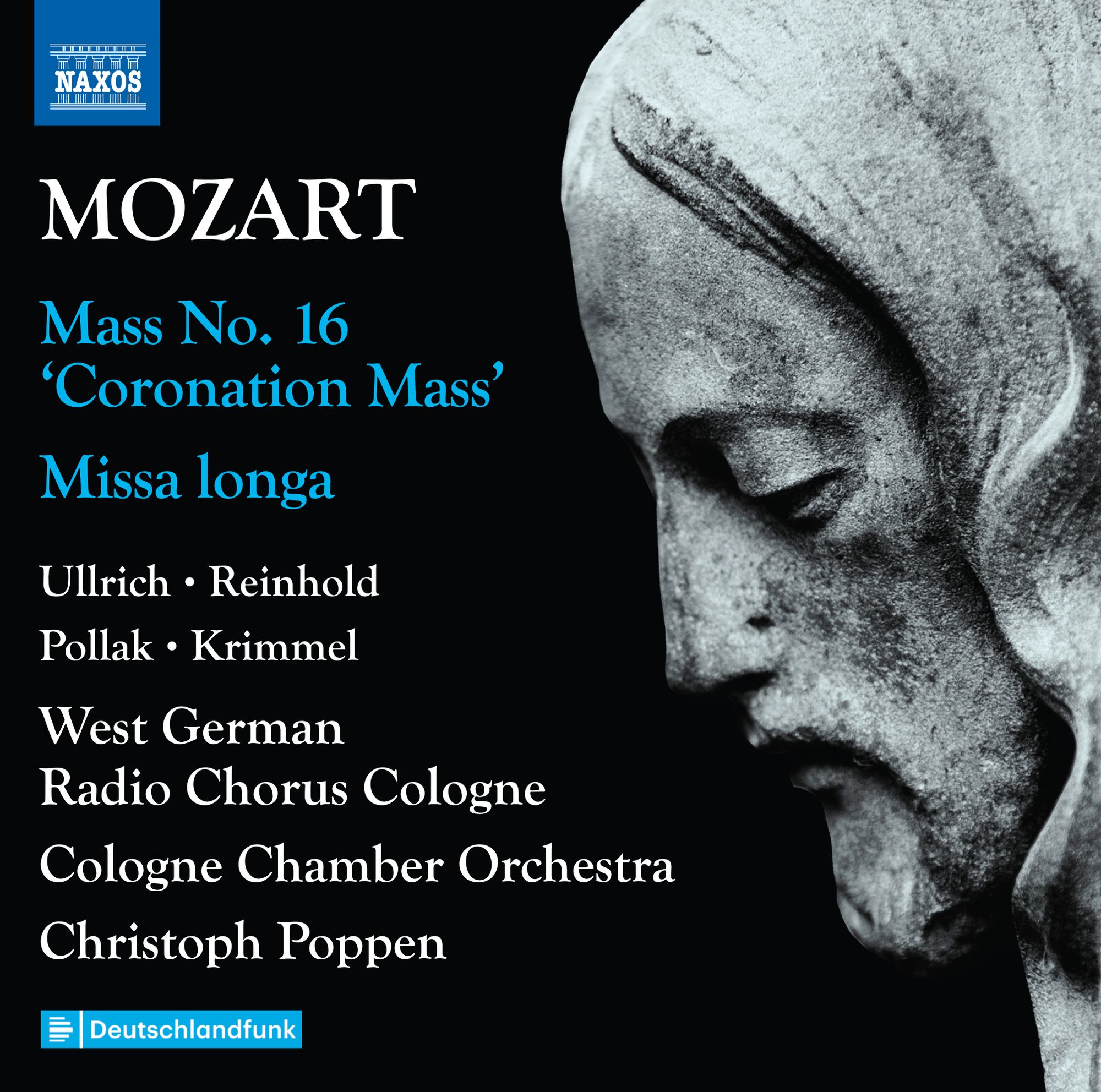Mozart Masses: a new cycle begins from Christoph Poppen

The idea of Classical Explorer has always been to investigate the byways of the repertoire while also t o celebrate the known. This disc offers the perfect combination: the well-known "Coronation" Mass (C Major, K 317, 1779) and the much less familiar but equally extended Missa longa (also C Major, K 262, 1775).
The two works are perfect disc bedfellows, when one takes into consideration the elaborate choral writing of the Missa longa. This piece stands on its own at its time of composition - the masses Mozart wrote around it are much shorter. Neither do we know why it was compsoed, specifically: we do know that it is possible that it was sung at the consecration of the Bishop of Chrysopel, Count Ignaz Joseph Spaur, a friend of Mozart’s family, on 17 November 1776 (but manuscript evidence suggests that it may not actually have been originally composed for that purpose).
Perhaps the most impressive movement is the Credo, eleven minutes of drama, beauty and superbly-wrought polyphony:
In contrast, the Sanctus and Benedictus are short, and concentrwte on th utmost beauty, with the Benedictus showcasing the superb soloists here, (Carolina Ulrich, soprano; Maria Henrietta Reinhold, mezzo; Angelo Pollak, tenor; Konstantin Krimmel, bass)::
Mozart doesn't let us down in the final "Agnus Dei," a movement that melds grandeur and heartfelt emotions. The West German Radio Chorus, Cologne is superb, exquisitely balanced and perfectly disciplined throughout.
When it comes to the fabulous "Coronation Mass," we hear influences of Mozart's trips to Paris and Mannheim, as well as moves towards a more operatic style: including a soprano solo in the concluding "Agnus Dei" that is a clear anticipation "Dovè sono" from Le nozze di Figaro. Here's Christina Ullrich (with contributions from, initially, tenor Angelo Pollak, and then the full gamut of soloists):
One of Mozart's most often performed Masses, the "Coronation", although shorter than K. 262, has a vast emotional remit. Tbe use of the soloists in the Kyrie is magical: listen to the interactions between soprano Carolina Ullrich and the honeyed tenor of Angelo Pollak (remember that name!):
There is a glowing aspect to Poppen's Gloria:
... while the soloists blend beautifully in the quietly joyous Benedictus:
The stylish playing of the Cologne Chamber Orchestra throughout is an absolute joy; they are clearly inspired by Christoph Poppen.
I would just also point out that the booklet notes are by Ivan Moody, a noted authority on religious music and in my experience intensely knowledgeable about everything he writes about. The icing on the cake; Volume Two is eagerly awaited.
Here's Naxos' own promotional video about this disc:
